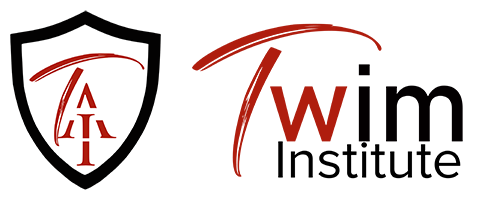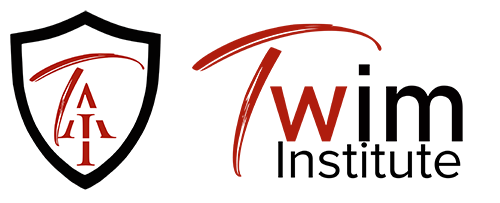
In culinary arts, cholesterol is a type of fat that is found in animal-based foods such as meat, dairy products, and eggs. It is a waxy, fat-like substance that is essential for the proper functioning of the body, but it can also contribute to the development of heart disease if consumed in excess.
In cooking, cholesterol is found in a variety of ingredients, including:
- Animal fats, such as butter, lard, and shortening
- Meat, particularly fatty cuts of beef, pork, and lamb
- Dairy products, such as cheese, milk, and cream
- Egg yolks
- Shellfish, such as shrimp, crab, and lobster
Some people try to limit their intake of cholesterol to maintain a healthy diet and reduce their risk of heart disease. For these individuals, it may be helpful to choose lean cuts of meat, low-fat dairy products, and egg whites or egg substitutes in place of whole eggs. It’s also important to pay attention to portion sizes and to balance the intake of cholesterol with other nutrients, such as fiber and protein.
Types of Cholesterol
In culinary arts, two main types of cholesterol are commonly discussed: dietary cholesterol and blood cholesterol.
Both types of cholesterol have distinct features that distinguish them from each other. For instance, the dietary cholesterol mostly comes from animals while the blood cholesterol is mostly found in the bloodstream.
In general, it is important to maintain a healthy balance of both types of cholesterol in the diet by choosing a variety of foods that are low in cholesterol and saturated fats.

Dietary Cholesterol Vs Blood Cholesterol
Dietary cholesterol is a type of cholesterol that is found in foods that come from animals, such as meat, poultry, eggs, and dairy products. It is a type of lipid, or fat, that is found in the cell membranes of animals and is also used to make certain hormones and other substances in the body.
Unlike saturated and trans fats, dietary cholesterol does not have a major effect on blood cholesterol levels. It is the saturated and trans fats in the diet that have the greatest impact on blood cholesterol levels and the risk of heart disease.
The American Heart Association recommends that adults consume no more than 300 milligrams (mg) of cholesterol per day. If you have high cholesterol or are at high risk of developing heart disease, your doctor may recommend that you consume even less cholesterol.
Blood cholesterol, on the other hand, is a type of fat that is found in the bloodstream. It is produced by the liver and is also found in some foods, such as animal-derived products like meat, dairy, and eggs. There are two main types of cholesterol: Low-Density Lipoprotein (LDL) cholesterol, as well as High-Density Lipoprotein(HDL).
LDL cholesterol can build up in the walls of the arteries, leading to a condition called arteriosclerosis, which can increase the risk of heart attack and stroke. On the other hand, HDL cholesterol helps remove LDL cholesterol from the arteries and can protect against heart disease.
It is important to maintain healthy levels to reduce the risk of heart disease and other health problems. This can be achieved through a healthy diet that is low in saturated and trans fats and high in fruits, vegetables, and whole grains, as well as regular physical activity and avoiding tobacco products. In some cases, medication may be necessary to lower high cholesterol levels.
Some Foods Rich in Dietary Cholesterol

Here are some examples of foods that are high in dietary cholesterol:
- Egg yolks: One large egg yolk contains about 185 mg of cholesterol.
- Organ meats: Liver, kidney, and other organ meats are high in cholesterol. For example, a 3.5-ounce (100-gram) serving of beef liver contains about 300 mg of cholesterol.
- Shellfish: Shrimp, crab, and other shellfish are high in cholesterol. A 3.5-ounce (100-gram) serving of shrimp contains about 175 mg of cholesterol.
- Whole milk: One cup (237 ml) of whole milk contains about 25 mg of cholesterol.
- Cheese: Some types of cheese, such as blue cheese and camembert, are high in cholesterol. A 1-ounce (28-gram) serving of blue cheese contains about 30 mg of cholesterol.
It’s important to note that dietary cholesterol does not have as much of an impact on blood cholesterol levels. However, people with high blood cholesterol or heart disease may still need to limit their intake of dietary cholesterol. It’s always a good idea to speak with a healthcare professional about your specific dietary needs and concerns.
Some Common Myths About Cholesterol
There are several myths about cholesterol. Some of them include:
Myth: All cholesterol is bad for you.
Fact: Cholesterol is a type of fat that is found in your body and certain. The truth is cholesterol is also important for the body to function properly.
Myth: You should avoid all foods that contain cholesterol.
Fact: While it is true that some foods, such as egg yolks and liver, are high in cholesterol, it is not necessary to completely avoid these foods.
Myth: Saturated fat is the only type of fat that raises cholesterol levels.
Fact: Trans fat can also hurt cholesterol levels. Trans fat is a type of fat that is commonly found in processed foods, such as fried foods, snack cakes, and cookies.
Myth: You can lower your cholesterol levels by avoiding all fats.
Fact: While it is important to limit your intake of unhealthy fats, our body still needs healthy fats to function properly.

Conclusion
In conclusion, there are several myths surrounding cholesterol that can be misleading. It is important to remember that it is not inherently bad and that some are necessary for the body to function properly. While it is important to limit the intake of unhealthy fats, it is not necessary to completely avoid all fats. Instead, focus on maintaining a healthy, balanced diet and including a variety of healthy fats in your diet.




